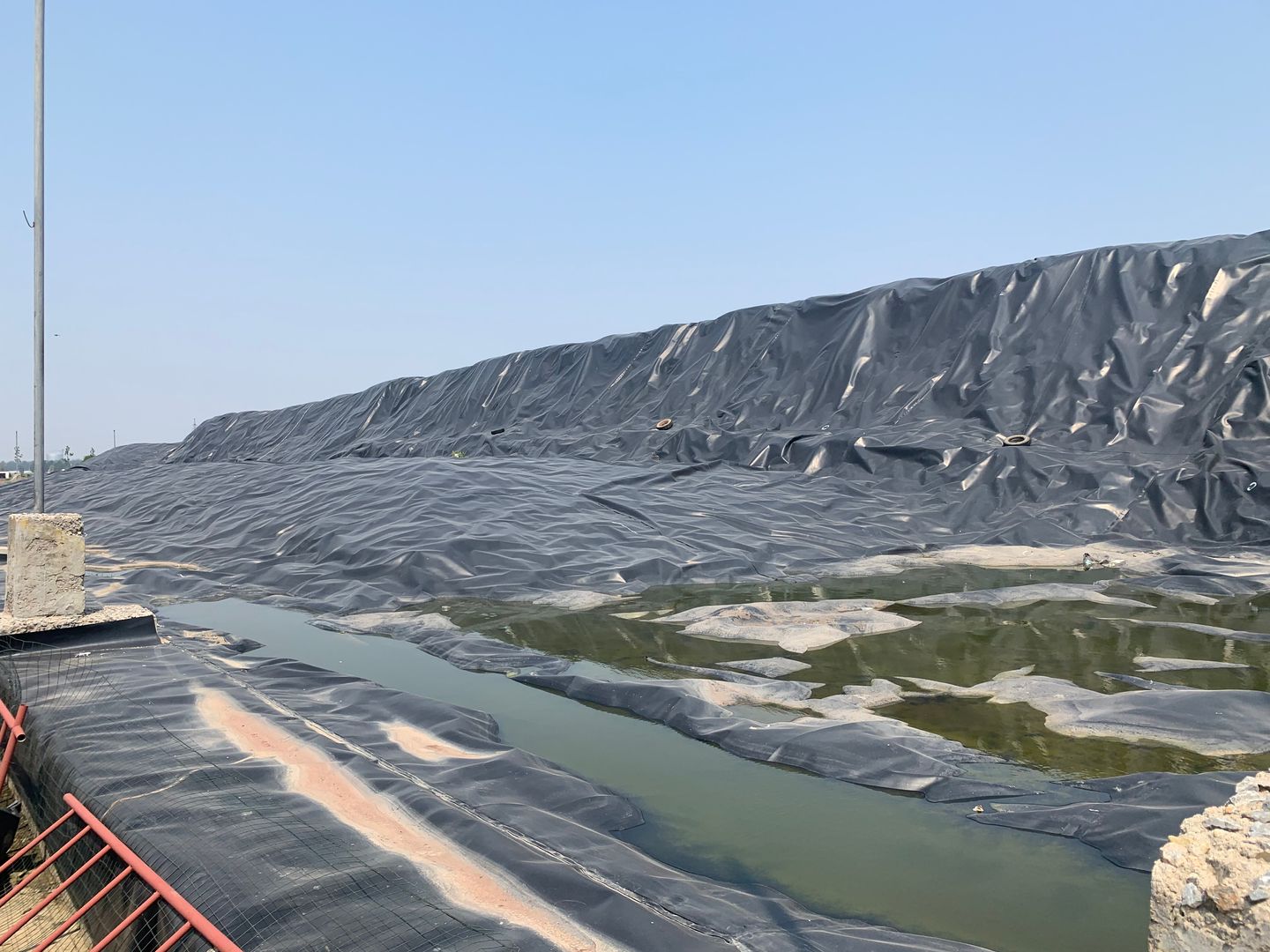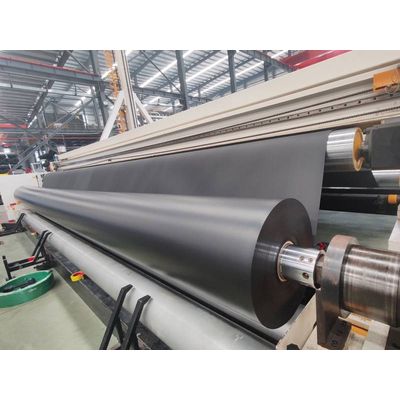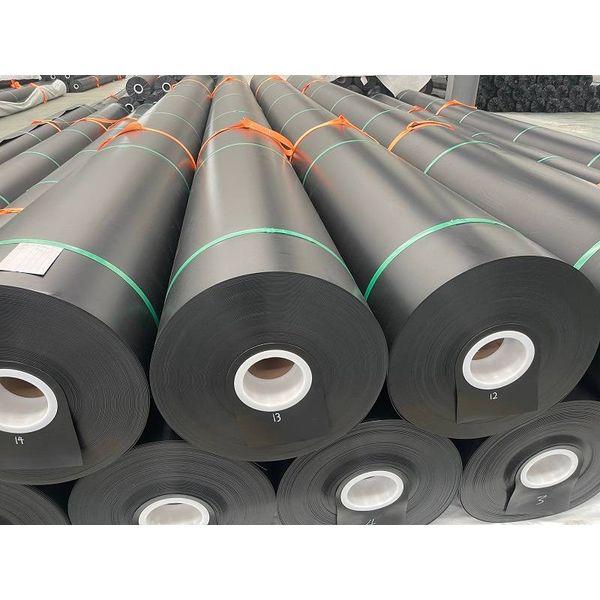

- Home
- Companies
- Earth Shield Environmental Co., Ltd.
- Articles
- Anti-seepage Geomembrane for Cattle ...

Anti-seepage Geomembrane for Cattle Farm manure Tank
The anti-seepage engineering of manure tanks in cattle farms is very important, and geomembrane is a commonly used anti-seepage material. In the construction of manure tanks in cattle farms, geomembranes can effectively prevent manure leakage, thereby avoiding problems such as groundwater pollution and soil erosion.
When choosing a geomembrane, you need to consider the following aspects:
- Geomembrane Material type: Geomembranes are generally divided into high-density polyethylene (HDPE), low-density polyethylene (LDPE), polyvinyl chloride (PVC) and other types. Due to the special characteristics of cattle farm manure, HDPE or LDPE materials are generally selected because they have high chemical stability and anti-penetration properties.
- Geomembrane Thickness: The thickness of the geomembrane directly affects its anti-seepage effect. Generally speaking, the thickness of the geomembrane used in cattle farm manure tanks should be sufficient to cope with possible mechanical damage and chemical corrosion.
- Chemical resistance: Cattle farm manure contains various chemical substances, such as ammonia, etc. Therefore, the selected geomembrane needs to have good chemical resistance and not be easily eroded by the chemical substances in the manure.
- Construction technology: During the construction process, attention should be paid to the laying and connection of the geomembrane to ensure that it covers the entire fecal tank and is tightly connected to avoid leakage.
- Protective measures: After the geomembrane is laid, you can consider installing some protective measures around it, such as gravel, concrete slope protection, etc., to enhance the stability and protective performance of the geomembrane.
In general, choosing a suitable geomembrane and taking appropriate construction and protective measures can effectively prevent leakage problems in cattle farm manure tanks and protect the surrounding environment from pollution.

Anti-seepage geomembrane plays an important role in the manure tank of cattle farms. Its main functions include:
- Prevent leakage: The large amounts of feces and sewage accumulated in the manure tanks of cattle farms will produce high concentrations of organic matter, ammonia and other chemical substances. If there are no effective anti-seepage measures, these harmful substances may penetrate into the soil and cause pollution. Groundwater resources. As an anti-seepage layer, geomembrane can effectively prevent liquids in feces from leaking into the soil, protecting groundwater quality and environmental safety.
- Protect the soil: Manure contains a large amount of nitrogen, phosphorus and other nutrients. If it leaks directly into the soil, it may cause excessive soil fertility, resulting in a decrease in soil quality and even soil pollution. Geomembrane can effectively isolate feces and soil, protect the soil from feces pollution, and maintain the balance of the soil ecosystem.
- Reduce environmental pollution: Leakage from fecal tanks will cause contamination of groundwater and surrounding soil, thereby causing harm to the surrounding ecological environment and human health. By using geomembranes for anti-seepage treatment, the spread and impact of these pollutants can be effectively reduced, and the surrounding water sources, soil and biodiversity can be protected.
- Extend the service life of facilities: Feces will cause corrosion and damage to cattle farm facilities. The use of geomembranes can effectively isolate feces and facilities, extend their service life, and reduce the cost of facility maintenance and repair.
Therefore, the anti-seepage geomembrane plays an important protective role in the manure tank of the cattle farm, ensuring the environmental safety of the cattle farm and the long-term stable operation of the facilities.
